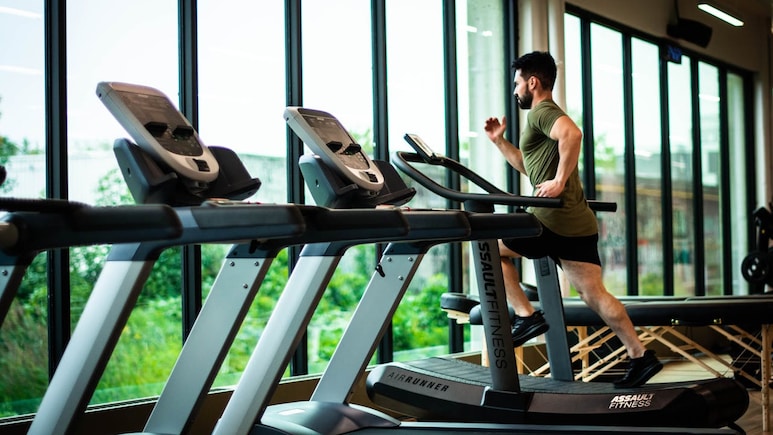
Staying fit and healthy is a top priority for many, but have you ever stopped to think about the potential risks involved? Sudden collapses during exercise are on the rise and it's time to learn the truth behind these alarming incidents. Wellness coach Luke Coutinho reveals that sudden collapse while exercising is linked to your cardiac readiness in fitness. He explains how one can prioritise their heart health while pursuing their fitness goals.
In a post shared on Instagram, Luke writes, "You've been hearing it everywhere, people suddenly collapsing while exercising. In gyms, during marathons, on morning runs, or even while at the office. The truth is, exercise isn't the culprit. The real risk is hidden cardiac issues and skipping vital health checks before pushing your limits."
According to Luke, the foundation of safe fitness lies in cardiac screening, nutritional balance and lifestyle readiness. "Without these, even the fittest-looking person can be at risk," he adds.
What Causes A Sudden Cardiac Arrest?
Sudden cardiac events often stem from undiagnosed conditions. Deficiencies in key nutrients trigger fatigue, cramps, or arrhythmias. Poor sleep, unmanaged stress and dehydration also silently tax the heart. Chronic stress leads to higher cortisol and irregular rhythms, while sleep deprivation can result in inflammation and poor recovery. Dehydration and genetics are also important factors for your heart health.
Recommendations
1. If you suffer from frequent chest pain, palpitations and dizziness, see a cardiologist first. Pair with a sports nutritionist to align diet with exercise needs.
2. Progress gradually with your fitness routine. Jumping straight into HIIT or heavy lifting unprepared can cause health problems.
3. Repeat tests annually or when symptoms change. Keep your doctor in the loop always.
4. Sleep well. Sleep deprivation worsens inflammation and cardiac risk.
5. Manage Stress. Chronic stress is strongly linked to heart events.
Disclaimer: This content including advice provides generic information only. It is in no way a substitute for a qualified medical opinion. Always consult a specialist or your own doctor for more information. NDTV does not claim responsibility for this information.
Track Latest News Live on NDTV.com and get news updates from India and around the world

